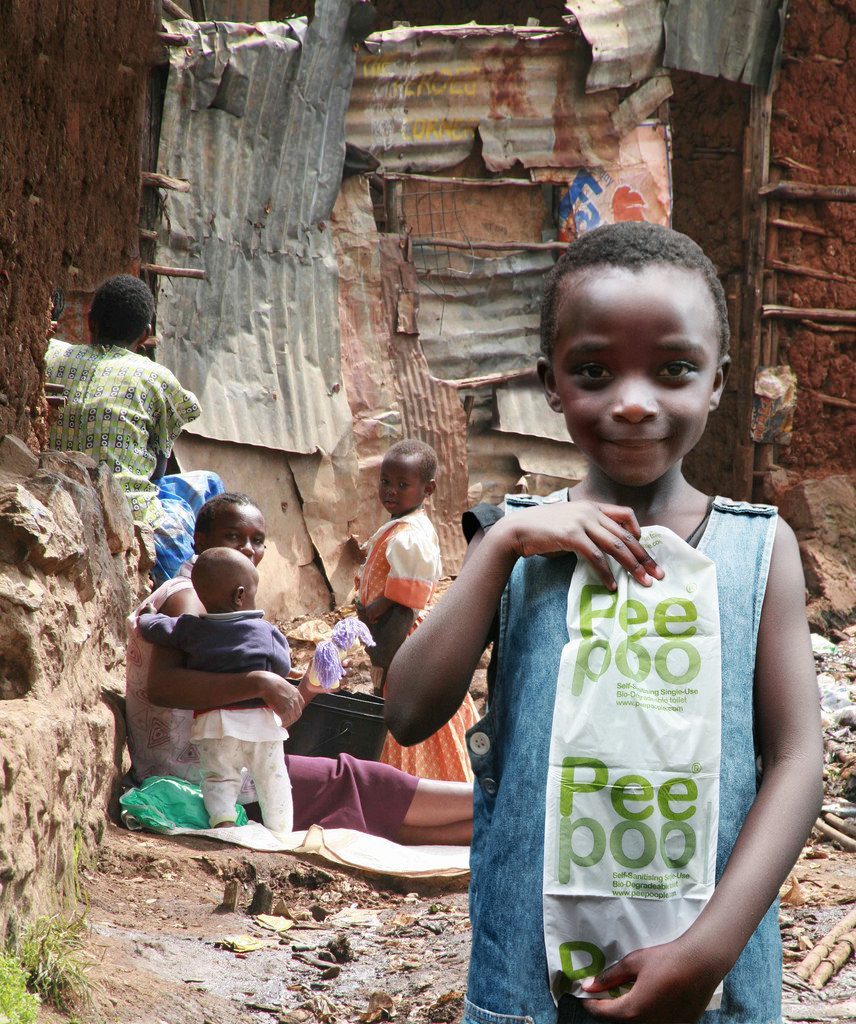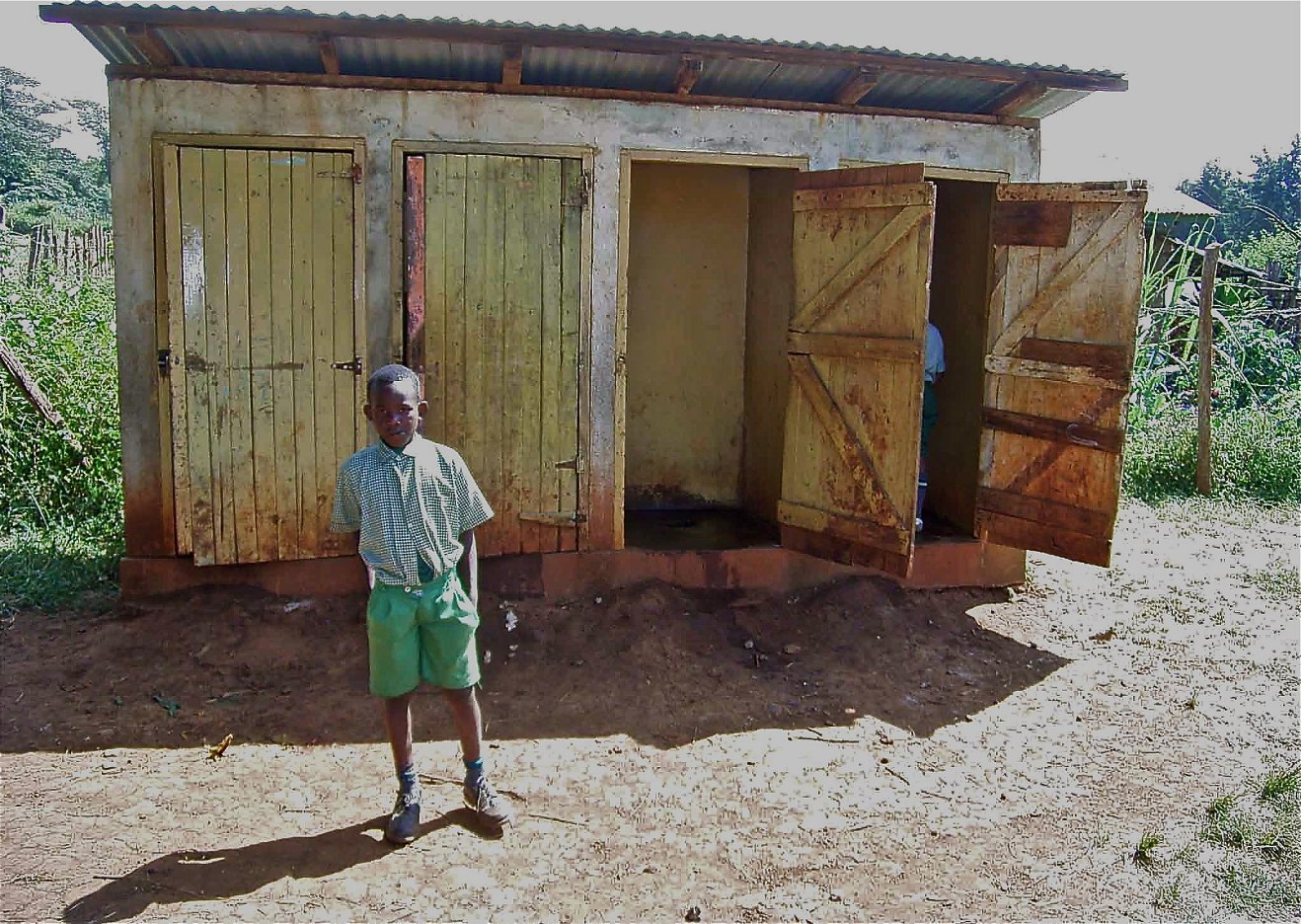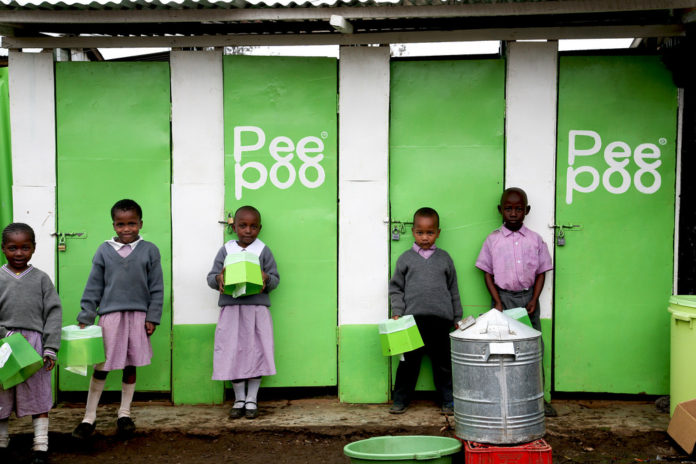By HENRY OWINO
According to various reports, an estimated to one billion men, women and children live in informal and ill equipped settlements. These settlements commonly referred to as slums are distinctly identified by their lack of basic social amenities. These are vital for normal daily living, with lack of proper structures being dominant.
The absence of such structures as shelter, sewer and drainage systems, school houses, recreational centers, just to mention a few, have negatively impacted lives of these populace.
One such settlement is Nairobi’s Kibera slum, home to approximately one million people, with close to three-quarters being children. Approximately two-thirds of children are girls.

Catapulted to global infamy of its flying toilets, Kibera remains the yardstick for the need of solutions to basic sanitation needs such as bath-rooms and toilet facilities.
This crisis has been a major catalyst for a series of serious health and economic concerns. Hand in hand with the housing problem is the lack of toilet facilities. Toilets are mostly communal pit latrine where a collection of nearly 300 or more men, women and children share one pit.
The ones, however, at most risk are the young children whose immune systems are still developing. Research by UNESCO has proven that one out of five children under the age of ten never see adulthood due to health related complications within the majority of such complications rising from sanitation related problems.

This community has few toilets and most of them are unfriendly to girls .
Flying toilets as they are preferably called, contribute a great deal in these residents’ health risks. Lack of toilet facilities extends to learning institutions with the main focus on primary schools.
Like everything in Kibera, they are mostly informal and lack many amenities. Sanitation has been a key issue in this setting that hosts thousands of children from different ethnicity. It is really shocking how lack of toilet facilities has contributed hugely to poor academic performances.
However, solutions are sought by concerned parties, organizations and individuals. One such organization is Peepoople Kenya.
Peepoole Kenya provides a single use, bio-degradable toilet widely accepted by the Kibera residents known as Peepoo. It is portable toilet bag for a personal, single-use toilet which sanitizes human excreta shortly after defecation.
According to Eunice Kerubo, Headmistress, Optimist Education Centre, Kibera, before the introduction of Peepoo, the school had a huge problem. This is because there was only one toilet which served both teachers and pupils. However, today there are new special toilets phasing out the pit latrines.
“We suffered serious in past but thanks to Peepoo who came to our rescue and provided us with toilets. Previously, we had a ditch behind the school used by boys for urinal but wasn’t safe, ”Kerubo recalls.
“Although, whenever someone wanted to poo, it was a problem, as everyone, was forced to wait for the other in a long queue. Teachers and pupils all lined up for their turns,” Kerubo notes.
“But ever since the introduction of the Peepoo School Program, we have benefited a lot, especially in time related circumstances,” she adds.
“When we had only one toilet, it used to take a lot of time because of the large number of pupils we have. Before we finish a class, the other class already lines up, greatly affecting our lesson plans,” she regrets.
“But now with Peepoo cabins it is easier. We now have separate teachers’ toilets and separate children toilets. It helps greatly and we don’t consume much time anymore,” headteacher asserts.
According to Moses Amwanya, Deputy Headteacher, Makina Baptist, Kibera, young pupils especially in lower classes cannot hold for long the need to pee or poo when it comes. So, they are given more break outs at least twice before normal break time for all.
“So, we get instances, where they were released on breaks to go the toilets but the older ones would reach first. In result, we would pee or poo on themselves and had to go home and clean up, thus missing lessons,” Amwanya explains.
Since teachers are also very busy with their work of teaching and marking their work, it is always not easy to attend to such pupils but to go home and change.
Megan Abby is a teacher at Jakes Academy, Kibera. She says when Peepoople brought the idea of the bags, which are bio-degradable, they embraced it. Since they started using it, it has many advantages to the pupils.
“Peepoo is very comfortable, the children sit on it and feel its good. When we used pit latrine in the past, there was the problem of smell and flies,” Abby compared.
Abby lamented the pit latrines forced the school to go into other extra costs like buying detergents and air fresheners. But since the Peepoo was brought to school, the use of pit latrine has reduced hence cut down on cost.
“We used to drain the latrine when it is filled up almost every term but now may be ones a year. The bad smell is gone and I will also say flies have disappeared,” Abby observed.
The cabins are well take care of, they are washed, cleaned and the cleaners are employed by school, hence provides them income for their families.
“So the advantage is that we no longer have urine on the floors, no flies and even bad smell any time,” Abby commended.
The Peepoo School Program continues to emphasize the awareness and good practices in daily personal hygiene as well as social awareness through hygiene for school children and staff via workshops, training sessions and constant presence of a Peepoole attendant in institutions for guidance.
Another measure taken is provision of access to clean water, easy to use and comfortable toilet facilities through setting up and maintaining people friendly cabins, soap and running tap water in the schools.
These cabins have hugely reduced chances of children, parents and staff contacting deadly contagious diseases. It has lowered the risks of physical harms among the younger children as parents and teachers attest. They claims previous pit latrines used, it posed threats to children below the age of 10.
According to Janet Alivisa, a parent at Makina Baptist, Kibera, the children that were taken to baby class had rough time. One could hear of a child’s leg stuck in pit latrine simply because they are not used to them as residents were used to flying toilets.
“Most of us here have no toilets, so even the child is unfamiliar with the pit latrine type of toilets. Mostly, you could find teachers had problems guiding the children because instead of stepping on sides of the pit, they put both feet in,” Alivisa disclosed.
“A few could sink inside or get stuck at the shoulders and that scared others from using the latrines. That was the problem we faced here frequently with our children at schools,”she said.
Nowadays, all children prefer the Peepoo toilet system in comparison to pit latrines they previously used, because they latrines are dirty, maggot infested and risky to use.
The success of Peepoo toilet program in Kibera schools has now become a branding and a marketing symbol. The schools with Peepoo systems now attract more school kids with parents saving some money.
So, the program has also indirectly contributed financially to parents, especially those with younger children who had to buy nappies on a daily basis. That was a huge hurdle, for a society living way below the poverty line.














